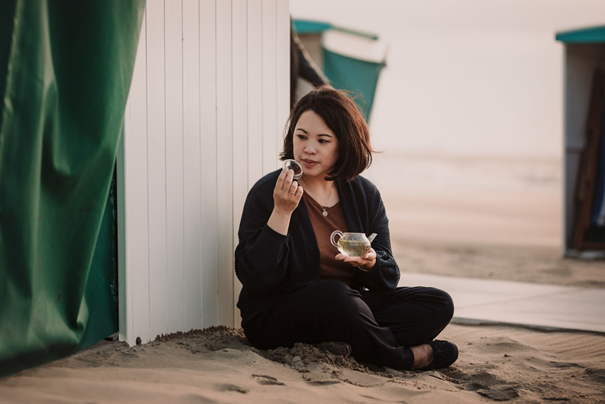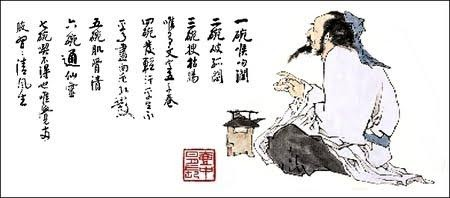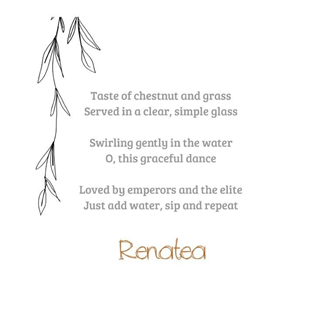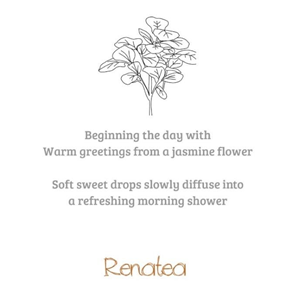How Lu Tong inspired me to write modern tea poetry.
There is something mysterious, almost magical about tea. It has a breeze of elegance to it. It’s adored by many people worldwide, across all segments of society. A beloved drink today, as in ancient times. Plenty of poems about tea can be traced to the Tang dynasty.
Those who share my interest in tea and its history find themselves lucky that so many written sources, stories, and poems about tea have been preserved over the centuries.

One of my favorite texts is a classic Chinese poem by Lu Tong (790- 835), which shows how one of my favorite activities, writing tea poetry, can bring our tasting experiences to the next level.
Let’s travel back to the Tang dynasty (618–907). The poem of Lu Tong, Seven Bowls of Tea — also called The Song of Tea — is the perfect example of how fascinating the spiritual dimensions of tea can be. Lu describes his change of moods: thirsty at first, then delighted and lightened, and eventually inspired to escape to another world. Lu Tong had reached the ultimate tea experience: an adventure of tasting, solely focusing on the tea. We would now call his experience one of the oldest forms of mindfulness.
This is his poem. Read it slowly.

Seven Bowls of Tea
The first bowl moisturizes my dry lips and throat
The second bowl removes the loneliness in my heart
The third searches dry streams of my soul to fill
The fourth vaporizes the pain of life’s inequities through my pores
The fifth purifies my mind
The sixth helps me to communicate with immortals
The seventh gives me a feeling of extraordinary pleasure
A breeze blows upon my arms
Where is Mount Penglai?
I, Yu Chuan Zi, lean upon this breeze and fly there
(Translation by Renatea)
My translation is one of the many interpretations of this poem. There are innumerable ways to understand and contextualize it. For me, the move from the physical to the spiritual is a wonderful way to describe the tasting of tea. It starts with the comfort tea offers on the most basic level: taking care of a dry throat and providing the satisfaction of drinking any kind of liquid. It is after the second bowl that emotions start to stir. The poet’s heart is touched, his mind immersed in the moment. And after more bowls, Lu’s state of mind becomes transcendental. In the end, we see him flying away to Mount Penglai in the land of the immortals.
Tea, as a spiritual balm.
Even Emperor Qianlong, of the Qing dynasty, was among the admirers of this popular tea poem. He often mentioned Lu’s tea in his own poems and paintings. Later on, many tea houses placed the poem on their walls in the most beautiful forms of calligraphy.
What I find even more interesting is the fact that this ancient drink is still popular in modern times, activating the same healthy and delightful sensations as those experienced by Lu.
When I read Lu’s poem, I often think of my very first freshly brewed Long Jing tea in Hangzhou. I felt relaxed. Calmed. Even a bit sophisticated.
I remember it well. Summer of 2008. Hangzhou. Meijiawu Village. Sunny weather. My first glass of Long Jing tea. Brewed in grandpa style. Neon-colored leaves in a simple tall glass. Then, the sound of water being poured down. Slowly. The sight of dancing tea leaves, some swirling around gracefully, some slowly gliding across the bottom of the glass. That morning I had to rush to Chinese language class and almost forgot to bring my homework. What a contrast with the peaceful tranquility of dancing tea leaves. With the spectacle of nature at its purest. With a soft breeze, cooling my tea down to the perfect temperature.

Although I had spent a lot of time in China before — Northern China, Shandong province, to be precise — this was the ultimate moment where Lu Tong and I could have encountered each other in the same mental space, almost touching hands before flying away to the immortals. My mind cleared and sharpened. My senses elevated.
From the color of the tea to the bubbles on the surface when the tea is poured. The experience is in the moment, when the mind is fully present.
Mindful versus mind full.
And then there is taste. The first sip. I was quite thirsty. Studying in Hangzhou had been a great experience: a destination so green, and quite exposed to local tourism, but still with ample opportunities to explore and enjoy tea fields. During one trip, everyone got a glass of freshly brewed Long Jing tea. I don’t remember the taste of the first sip. I was happy enough to get a drink in the first place. Then, I could taste it. Grassy. Nutty. Sweet. Like a warm puffy chestnut on a snowy winter night. It tasted green, like vegetables. In a good way. Like finally eating something healthy after too much chocolate. Very pleasant. Even after many years, I can still recall that taste.
From that moment I became interested in tea. But this journey was slow at first. I graduated, married, worked and had children. While I never flew to Mount Penglai, I often think back to that first genuine tea experience. Happy thoughts. It wasn’t until ten years after my first sip of Long Jing tea, during a workshop on Chinese tea by Paul van der Toolen at Moers (Leiden, the Netherlands) in the Spring of 2018, that I experienced the same feeling again. Solely focusing on tea, and being totally at ease as a result. Calm and happy.
I decided to enroll in a course to become a tea sommelier and combine what I like most: writing and drinking tea. I studied Lu Tong’s poem and his written experience of drinking tea. They inspired me to write down my own thoughts and feelings while enjoying a cup of tea. They also allowed me to become mindful and conscious, to make tea step by step, and to sip it slowly. Poetry enables me to describe my idealized tea ceremony, but also my tea “failures”, as these are part of life too. The poems I post on Instagram allow me to express my tea tasting experiences while sharing them with many more.

You are very welcome to read my poems about tea and hopefully we can meet at Mount Penglai someday!
About me
My name is Renate. Tea name: Renatea. Born, raised, and based in the Netherlands. Both my parents are Peranakan Chinese from Indonesia. Not speaking Chinese as a child, I followed my roots and graduated in Chinese Studies from Leiden University and Shandong University and in Social Science from the University of Amsterdam. I’m a certified tea sommelier at the International Tea & Coffee Academy in the Netherlands, but I’ll always be a student of the tea leaf and experience this journey as a never-ending, joyful life experience.
Contact
Email: info@renatea.nl
Instagram: @renatea.nl (poems are published in Dutch and/or English)
MyTeaPal: @renatea
(Originally published by Renate in MyTeaPal Stories)